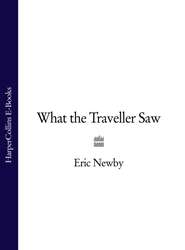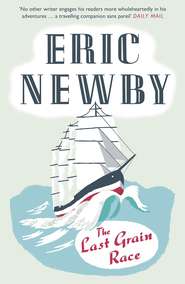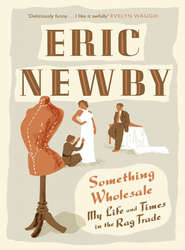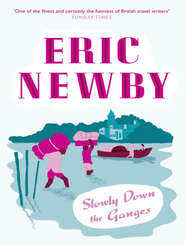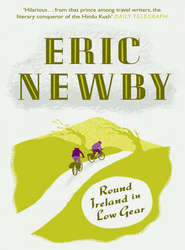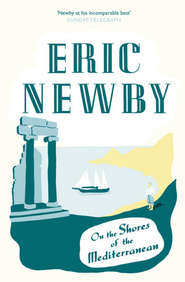По всем вопросам обращайтесь на: info@litportal.ru
(©) 2003-2024.
✖
Departures and Arrivals
Автор
Год написания книги
2018
Настройки чтения
Размер шрифта
Высота строк
Поля
Down there in the tunnels all of us were frightened, except Margaret Evans who told us not to be ‘funky’. Down there in the tunnels there was not a sound except for an occasional clonking noise from the heating system. Down there we were looking for the spookiest place in Riverview Gardens and this was it. But the most memorable time for our gang was when my mother, who liked the idea of a gang, rigged us out as ghosts, using old dust sheets. Dressed all in white, with tall, conical hats stuffed with tissue paper to keep them upright and slits for eyeholes, we looked like miniature members of the Ku-Klux-Klan, or penitents in Holy Week.
Wearing these outfits, we used to swoop down The Gardens, making ghastly ghostly noises, alarming the inhabitants of the flats and gesticulating at the passengers on the upper decks of the Number 9 buses.
By the time I married Wanda in Florence in 1946, I had already lived for nearly twenty years in Castelnau Mansions and I felt that I had had enough of it. Already, by the time I was nine or ten and was at Colet Court, the alleyways that had served as trenches in which we played our war games, pelting one another with clay bombs of varying degrees of hardness, now seemed nothing less than squalid, and the smell of dustbins and cats insupportable. And with all this against it our gang simply melted away, and the whole tiny area became intolerably sad.
I made what I now see to have been two attempts to get away from Castelnau Mansions, the first in 1938, when I became a sailor, the second in 1939 when I became a soldier. Both times I found myself inexorably drawn back to them. Even when Wanda came to England in 1947 and we had to find somewhere to live, we had to stay with my parents at Three Ther Mansions. They were heroic because the flat was pretty small for four of us. There was a double bedroom which just took a double bed, with views down The Gardens to the astonishing great hulk of Harrods Furniture Repository, a single bedroom, which had been mine, a small drawing-room and dining-room, both overlooking the reservoir, a very small hall and a minute bathroom. And there was a kitchen and the minute domestic’s bedroom, which my father kept his suits in as there was no living-in domestic any more. And in it he also kept, done up with string, hundreds of back copies of the Morning Post. And there was the terrible loo on the backstairs.
Why my parents, who were only badly off intermittently up to that time, chose to live in such crowded quarters when there was no need for them to do so was a mystery to me. I can only think that they weren’t really interested in homes in the accepted sense of the word at all. Years of rag-trade travelling, anywhere from Bradford to Berlin and Perth to Paris, where they bought ‘models’ to copy, most of the time living in hotels, with all the advantages of having room service at the press of a button and not having to make beds, may have blunted their taste for the homely hearth. Whether this was true or not they used to spend several months of the year travelling, which seemed like whole ages to me.
It could have been worse. They left me in the care of a housekeeper, a Miss Roy, a good, kind woman whose Liverpudlian accent I used to try and copy, and of whom I was very fond, so that I could not have had any real need to be sorry when my parents set off on what they called ‘The Journey’ in order to sell their productions, something that I was to set off on some twenty years later. Nevertheless, I always found myself crying as they went down the stairs and through the door with the brass doorknobs to the taxi waiting outside The Mansions, wondering if I would ever see them again.
Travels with a Baby (#ulink_d792e0dc-b3d7-5161-add1-2384a6515d15)
In January 1947 the British coal industry was nationalized and in one of the coldest winters anyone could remember there was no coal. In these inauspicious circumstances Wanda gave birth to a daughter in Queen Charlotte’s Maternity Hospital across the river near Stamford Brook. At that time we were living in a small, top floor flat round the corner from Three Ther Mansions at 24 Castelnau Gardens, for which we paid what seemed the high rent of £63 a year. If anyone thinks that life with Wanda was dull in that flat, or later, when we lived in Riverview Gardens, then they have got it all wrong. It was in Castelnau Gardens that she let slip a can full of garbage which she was trying to insert into one of the lifts on an upper floor of the building – it fell on one of the porters down below. He didn’t sue us. It was a miracle. Later, in Riverview Gardens, she forgot to turn the gas off. This led to a spectacular explosion which destroyed a stuffed fish; but not as spectacular as the one when she boiled a kettle full of methylated spirits, under the impression that it was water, while camping on the banks of the Somme en route for Italy.
In the summer of 1947, when the baby was about seven months old, Wanda decided to take her to visit her parents who lived in the Carso, the strange limestone country around Trieste, leaving me to get on with the execution of the autumn orders, some of which we would soon be delivering to the shops. At the time I was working for the family firm as a commercial traveller in the fashion business.
Although she had been very reluctant to do so, being of an economical turn of mind, she had eventually been persuaded to travel by wagon-lit. At this period, with large areas of Europe still in a state bordering on chaos, it seemed a justifiable extravagance for a woman travelling alone with a baby.
I had also arranged for her to travel in a through coach from Calais, which meant that when the train reached the Gare du Nord, instead of getting down there and taking a taxi across Paris to the Gare de Lyon, she could remain on board and be shunted round the city on what is known as the Ceinture to the Gare de Lyon, where it would be attached to the Simplon-Orient Express.
I got the two of them to Victoria in good time for the boat train to Dover, in our Hillman Minx; but as we were walking to the platform preceded by a porter pushing the remainder of her luggage and with the baby swinging between us in a portable cot, Wanda suddenly said, ‘I’ve forgotten the basket!’
The last time I had seen the basket was in the hall of the flat. It contained all the mysterious necessities of weaned-baby travel, many of which I had myself regarded as mandatory when I was a baby – huge quantities of nappies, boiled water and a complete menu of baby food and drink for three days on a train. The extra day’s supply was in case the train broke down. At that time, with the war only recently over, baby food was not so easily obtained in Europe as it is today and Wanda had prepared purées of fresh vegetables and farmyard chicken, none of them out of tins. ‘Where I come from,’ Wanda said, ‘we don’t give babies tings from tins.’
‘Hurruck,’ she said, which at that time was still the nearest she could get to a correct pronunciation of my Christian name, having considered the implications, ‘I must have zat basket.’
In 1947 traffic in London was not yet the problem that it was shortly to become. In fact it was perhaps less dense than it had been before the war. I had something like half an hour to get to Hammersmith Bridge from Victoria and back again before the train left; but in spite of everything en route being in my favour I arrived back at the station with the basket just in time to see the end of the train disappear beyond the end of the platform. I asked for an interview with the Stationmaster and explained the situation to him. He was dressed in a morning coat and black top hat, having just seen off some distinguished personage by the same train. ‘That’s a bad business,’ he said. ‘You can’t have a baby eating all sorts of messed-up foreign stuff, I can see that.’ And he busied himself with the telephone, but to no avail.
‘We can’t stop the boat train,’ he said. ‘It’s not as easy as that. I wish I could send an engine after it but we can’t do that either and, anyway, it would never catch it up,’ which evoked memories of Mr Toad being pursued by an engine-load of beefeaters and policemen all shouting at the tops of their voices ‘Stop, Stop, Stop!’
‘Have you thought of the air?’ he said finally, speaking of it as it must have seemed to him, an unfamiliar element from another world. ‘Why not try the air? Ring up the airline people. You can use my telephone.’
On the telephone, however, I was once more a man of no account, a man without qualities – ‘I am speaking from the office of the Stationmaster at Victoria Station’ cut little ice with the man I was speaking to at the airline’s office, who was soon convinced when I unfolded my problem to him that he was dealing with a lunatic. And it became obvious that the only thing to do was to go to their office, taking the basket with me, which I did.
There I was told that if the basket was to stand any chance of getting to Paris that day I would have to take it to the airport myself, and hand it in to the Air Freight office there in person.
I suddenly remembered that I had an appointment to show evening dresses to the model dress-buyer at Harrods, an appointment which I had only been able to make with great difficulty and exertion; but by this time the problem of the basket had begun to exercise such an obsessive fascination over me that any sense of proportion I might have possessed had vanished.
‘Pity,’ she said when I telephoned her to tell her what had happened, and could I possibly come tomorrow. ‘I’m finishing up here this morning and going on holiday this afternoon.’
What I ought to have done was to have taken the dresses to Harrods, and shown them to her. She was in fact fascinated by the dilemma I was in and I would probably have got an order. Once in the store I could have contacted the manager of the Food Hall as an account customer, although a not very important one, and persuaded him to telephone Paris and ask some caterer, such as Fauchon in the Place de la Madeleine, to deliver a hamper of food suitable for infants to the Gare de Lyon. Instead I rashly took it upon myself to see whether I could get a basket of baby food from London to Paris by air.
It was midday before I got to what was then London’s embryonic airport. At that time it consisted of a number of dreary-looking huts, which gave incoming passengers the sensation of arriving in some beleaguered fortress and those taking off the sensation of leaving one.
In a hut occupied by ‘Air Freight’ I began to fill in a declaration form, writing ‘Baby Food, etc.’ under Contents. Dire penalties were threatened for any misinformation I might give.
‘’Ullo, ’ullo, what’s this – baby food?’ said a gloomy-looking man – almost everyone was gloomy in 1947, the promised land being still just around the corner. ‘Got an Export Licence?’
‘Export Licence?’
‘Yur, Export Licence. Board of Trade. It’s food. You need an Export Licence for Food. Two kinds of licence, Specific and Bulk. You need a Specific.’
‘No one told me. Where can I get one? Can you give me one?’
‘Theobald’s Road.’
‘Where’s that?’
‘In the City.’
Finally, having cut me down to what he estimated was my appropriate size, he relented and allowed me to fill in Form 91b, relating to ‘Export of Specific Articles of Food to the Scheduled Territories’ I think it was, which he kept up his sleeve he told me, as he became more genial, for just such emergencies as this – that is if any similar emergency could be envisaged.
Now things began to look up. I fell into the hands of what at that time was still referred to as ‘a good type’, one with a large RAF moustache, and what was more important with a human being behind it. And I began to see that my fortunes or lack of them were developing a kind of rhythm that if expressed graphically would look like one of those wildly fluctuating temperature charts which are suspended over the patients’ beds in funny cartoons about hospitals. First I forgot the basket. Then I got it. Then I missed the train. Then I met a nice stationmaster and so on, and now I was being helped by a nice man with a huge moustache.
‘Hm,’ he said. ‘You’ve had a rotten day so far by the sound of it. Let’s see what time the Simplon-Orient leaves the Gare de Lyon. George, ring up Victoria, Continental Enquiries, on that special number, otherwise you’ll never get through, and find out what time the Simplon-Orient leaves the Gare de Lyon tonight, French time … No good at the Gare du Nord, she’s on the Ceinture in a through coach … Leaves the Gare de Lyon at 21.05, French time … Right, I’ll ring Le Bourget’ – and to me: ‘You don’t happen to have the voiture number and the compartment, do you?. Pity … Hallo, Armand … I know … Well, you’ll have to … That’s right, send Alphonse, by motor cycle. He can hand the basket to the Chef de Train personally.’
‘One of our best men,’ he said as he put down the receiver, ‘Alphonse. He was a courier in the Resistance up near the Belfort Gap. Unfortunately there’s no plane until this evening and I can’t risk sending it by passenger plane for reasons which I don’t want to bore you with. But don’t worry, he should just make it. Between ourselves if we charged you for all this it would cost you a fortune. As it is, have it with our compliments.’
When I finally reached Great Marlborough Street, my parents’ London premises, later in the afternoon I was handed a telegram. It had been sent from Dover Harbour and read: ‘Don’t send basket. Wanda.’
This is what subsequently happened to it. It reached Le Bourget but the plane was late and Alphonse, hero of the Resistance, whirled it to the Gare de Lyon on his motor cycle a bare eight minutes before the Simplon-Orient pulled out. Owing to a clerical error, none of the boards displayed outside the wagons-lits which gave the passengers’ names had Wanda’s name on it and the Chef de Train disclaimed any knowledge of a woman named Newby with a baby, perhaps because she had not joined the train at the Gare de Lyon but had been shunted round the Ceinture in the Istanbul coach. He also refused to take delivery of the basket. In a last desperate attempt to hand it over, Alphonse approached the Stationmaster and begged the use of his public address system. The Stationmaster, like the Chef de Train, was a bureaucratic monster. He refused permission for this, and also the request to hold the train for a few minutes while Alphonse went through the sleeping cars, with the words, ‘It is in this way, at the moment of departure of a great train, that accidents can occur if orders are reversed.’ And the train left without the basket. All this I learned from Bill, my moustachioed friend, the following morning. The news plunged me into unspeakable gloom.
Three days later I received a letter from Wanda, postmarked Domodossola, at the Italian end of the Simplon Tunnel.
‘I am glad I was able to send a telegram telling you not to send the basket,’ she wrote. ‘You remember that silver we bought for Valeria?’ (Valeria was Wanda’s greatest friend. She lived in Fontanellato and was getting married shortly. We had bought her six place settings of cutlery from George Jensen in Bond Street, the most expensive wedding present we ever bought anybody before or since.) ‘This seemed a good time to take it to her,’ she continued, ‘and because of the Customs I put it in the basket under the food. It will have to wait now until next year. There was no need to worry about Sonia. Everyone was very kind. The cook on the ship cooked just the right food for her and let me into his kitchen to see for myself, and on the train from the Gare de Lyon the chef in the ristorante made purée with lots of fresh vegetables. He even had spinach. In a couple of hours we shall be in Milano and there the controllers of our vagone is going to get me more fresh food, which will also be cooked for me.’
A week or so later Bill, the man with the moustache, telephoned to say that someone on the French side of the Channel with a horrible sense of humour had returned the basket to him full of what was now putrescent baby food.
‘I don’t suppose you want it,’ he said. ‘It means you’re coming all the way here and going through Customs, all for a few nappies and feeding bottles.’
I told him about the silver. There was nothing else to do in the circumstances, and there was just a faint hope that it might be still there.
‘Half a mo,’ he said. ‘I’ll just take it outside and turn it out on the concrete.’
Soon he was back. ‘Sorry,’ he said. ‘You’re having a run of bad luck. There’s nothing but a nasty smell.
‘I expect it was Alphonse,’ he went on. ‘I told you he was in the Resistance. He might be soft-hearted about babies but not about anything else.’
Days and Nights on the Orient Express (#ulink_be26067a-7031-57be-a2ac-527397b696a2)
Long before I acquired employers well enough off to enable us to travel in a wagon-lit if we wanted to do so, which was when I became a fashion buyer in the early sixties, the real Orient Express had ceased to be a practicable means of getting to Istanbul.
The only sensible way of getting to Istanbul by train was on the Simplon-Orient, later named the Direct Orient Express, from the Gare de Lyon. The Direct Orient finally ceased to run in May 1977, by which time it was infested with malviventi who drugged and robbed the passengers and subjected them to even worse indignities, which was the end of it.
In order to join the Simplon-Orient, or the Direct Orient, from London, you took the boat train from Victoria to Dover. A more chic way was to board the Golden Arrow All-Pullman train at Victoria and the equally luxe Flèche d’Or on the other side of the Channel. This just gave time for anyone of an adventurous disposition to take a taxi from the Gare du Nord to the Gare de Lyon, stopping off at the Ritz Bar in rue Cambon on the way. Otherwise you could stay on the train and be trundled round Paris with your luggage, as Wanda had been, on the Ceinture to the Gare de Lyon. The scenes on the platform of the Gare de Lyon, for anyone interested in such trivia, and most people are, were in their way memorable. In those now far-off days the travelling rich could actually be seen travelling: on trains, transatlantic liners, even in aeroplanes – how they contrive to move about now is a mystery – and at the Gare de Lyon the platform was crowded with conspicuous consumers. Very few of these conspicuous consumers on the Simplon or the Direct Orient held sleeping-car tickets for the through carriage to Istanbul by way of Bulgaria. The majority boarded cars bound for Milan, Rome, Naples, Venice, Thessalonica or Athens, which could be detached from whichever of these two expresses they were part of along the line and, if necessary, attached to other expresses on other lines.
Wearing heavy overcoats (let no one tell you that it isn’t cold in Istanbul in winter), armed with passports stamped with hard-to-get Yugoslav and Bulgarian transit visas, without which the journey could not be made, we walked up the platform at the Gare de Lyon past the big blue sleeping cars with the bronze ciphers of the Compagnie Internationale des Wagons-Lits et des Grand Express Européens embossed on their sides until we reached a voiture-lits with the magic words PARIS – LAUSANNE – MILAN – VENEZIA – BEOGRAD – SOFIA – ISTANBUL displayed on it in black letters on a white ground.






